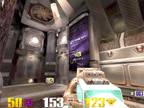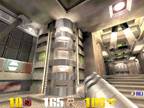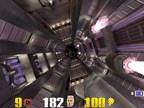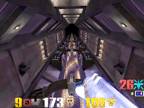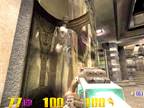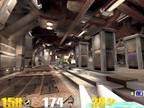 |
|
|
|
In the Forums... |
Posted: May 15, 2000 Written by: Tuan "Solace" Nguyen Cost: About $350 Benchmarks (cont.) Benchmark details: Quake 3 Arena with Point Release 1.17: Demo001 Quake 3 Arena 1.17 - 640x480 Fastest, Normal, High Quality Quake 3 Arena 1.17 - 800x600 Fastest, Normal, High Quality Quake 3 Arena 1.17 - 1024x768 Fastest, Normal, High Quality Quake 3 Arena 1.17 - 1280x1024 Fastest, Normal, High Quality 3DMark 2000 @ 32bit Color, 32bit texture 640x480 800x600 1024x768 1280x1024 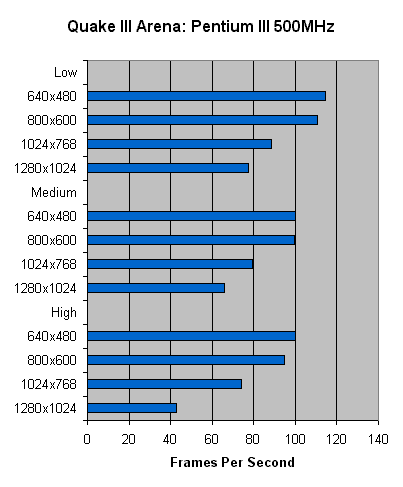 We see that even on a Pentium III 500MHz, the Gladiac really struts its stuff. Noting that the geometry T&L functions are done on the GPU, having a relatively midrange processor doesn't pull the performance down too much. Even on a lower PII or Celeron, the GeForce 2 GTS really shines -- thanks to onboard T&L, which takes a huge load off the processor, leaving it free to do other tasks such as AI, physics, and sound. We didn't have time to load some games on the Athlon to benchmark it but rest assured those will be up soon. 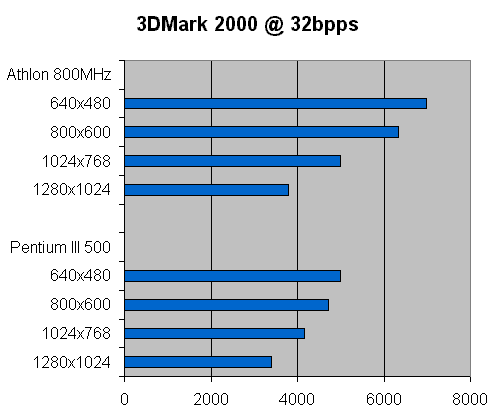 As we see here, the Gladiac really can scale with faster processors. But at higher resolutions, the memory becomes the main bottleneck. You'll want the 64MB version of the Gladiac for good performance in very high resolutions. The Gladiac is an excellent performer -- the king of the hill until other GeForce 2 GTS cards appear. We did try a little bit of Unreal Tournament on Pentium III side -- 1280x1024 (with max graphics settings) going at 62FPS average. The card does very well with medium to high end processors. Screenshots We took a few screenshots of Quake 3 running in the special NV15 level nVIDIA created to show off the card. Click on the thumbnails to open a larger image. The large images were captured at 1152x864.
|
||||||||
|
| |||||||||
|---|---|---|---|---|---|---|---|---|---|
